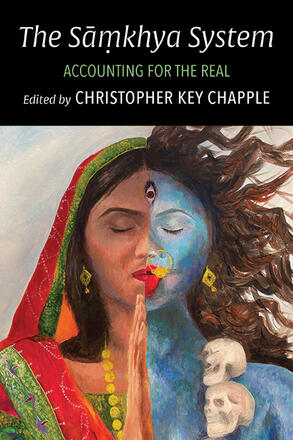
The Sāṃkhya System
Accounting for the Real
Alternative formats available from:
Explores the Sāṃkhya system and the delicate relationship it articulates between witness consciousness (Puruṣa) and manifest realities (Prakṛti), providing a path to freedom through knowledge.
Description
The Sāṃkhya System brings new life to an ancient Hindu system of thought. Sāṃkhya spans the fields of philosophy, physics, metaphysics, psychology, and ethics. Although notably not theological, its key premises can be found in virtually all religious traditions that originate from India. Sāṃkhya espouses a reciprocity between Prakṛti, the realm of activity, and Puruṣa, the silent witness. It also delineates the phenomenal experiences that arise from Prakṛti, including the operations of the human body, the five great elements, and the eight mental states. Sāṃkhya proclaims that knowledge of world and self can lead to freedom.
This book presents a new translation of Īśvarakṛṣṇa's Sāṃkhya Kārikā, with grammatical analysis. It includes interpretive essays that explore the philosophical aspects of the Sāṃkhya system by Geoffrey Ashton, Ana Funes Maderey, Mikel Burley, Christopher Key Chapple, and Srivatsa Ramaswami, as well as its sociological and psychological applications as delineated by Marzenna Jakubczak, McKim Marriott, and Alfred Collins.
Christopher Key Chapple is Doshi Professor of Indic and Comparative Theology, Loyola Marymount University. His previous books include Yoga and the Luminous: Patañjali's Spiritual Path to Freedom and Living Landscapes: Meditations on the Five Elements in Hindu, Buddhist, and Jain Yogas, both published by SUNY Press.
Reviews
"This book offers a fresh look at Sāṃkhya, treating it as a living philosophical tradition worthy of sustained attention. In addition, the new translation of the Sāṃkhya Kārikā at the beginning of this work, plus the in-depth grammatical analysis in the appendix, will be invaluable to students of Sāṃkhya looking for an accessible version of the text." — Andrew J. Nicholson, author of Lord Śiva's Song: The Īśvara Gītā
"Sāṃkhya is a fascinating and profound philosophy that deserves much more scholarly attention. This book takes a multifaceted approach to the tradition, engaging with several different academic disciplines—philology, philosophy, history, sociology, anthropology, and textual studies. The contributors do an excellent job of firmly locating Sāṃkhya as a living religious philosophy that in many respects permeates all of Indian culture." — D. E. Osto, Massey University of New Zealand